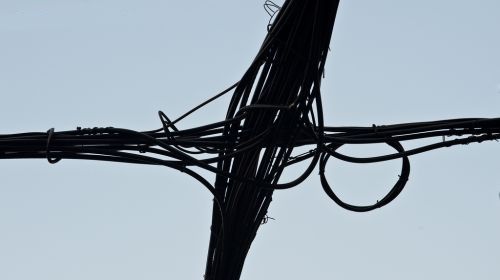
The Federal Communications Commission has taken the first step in rebooting the net neutrality rules. Today’s announcement by FCC Chairman Tom Wheeler follows a major D.C. Circuit decision this year, which struck down the existing rules requiring that Internet Service Providers (ISPs) treat all data on the internet equally, while keeping the door open for future FCC action to prevent broadband providers from discriminating against or blocking certain websites or services.
Chairman Wheeler laid out several steps to address the court’s ruling, the most important of which are:
- Reclassification: Today’s announcement keeps the best solution to the court’s decision on the table. That is, it recognizes that the FCC can reclassify broadband services as a “common carrier,” under Title II of the Telecommunications Act of 1996, which would allow the commission to treat broadband providers like telephone service, where companies can’t play favorites among customers or among services provided over the phone. The ACLU has long called for this reclassification of broadband services, and the FCC needs to move forward resolutely to make that a reality. It deserves credit for preserving the option.
- No-Discrimination: Chairman Wheeler urged the FCC to consider new no-discrimination rules to prevent ISPs from favoring some content at others’ expense. These would be applied on a case-by-case basis under section 706 of the 1996 Telecommunications Act, which obliges the FCC to promote broadband deployment and competition. (While we support the FCC’s quick action to protect broadband consumers, we also urge it to expressly acknowledge that section 706 cannot be used to regulate internet content. We do not believe it can, but there’s some concern that it might be misused.)
- No-Blocking: Chairman Wheeler asked the commission to consider a new no-blocking rule so that ISPs can’t block or slow down their competitors or controversial content. While the court suggested that a blanket no-discrimination rule can’t pass muster under the legal framework presented by the FCC, it gave the FCC more latitude on a no-blocking rule. Today’s announcement recognizes that leeway and promises to consider how to prevent blocking and ensure that consumers can access any lawful content or services they desire.
The FCC also decided to preserve the mixed-bag of the January court ruling by not appealing the three-judge D.C. Circuit decision to either the full appeals court or the Supreme Court.
To be clear, the FCC’s priority must be reclassification. That’s the only solution that reflects today’s reality. Modern broadband providers are quintessential common carriers, and the very few options for high-speed broadband in most markets means that consumers can’t vote with their feet and discipline provider misbehavior. Reclassification also doesn’t raise the specter of unintended consequences, which some have pointed to as a danger if the FCC moves ahead with net neutrality rules without taking that step.
We’re encouraged by the FCC’s quick action and hope it keeps up. If you agree, take action today to urge the FCC to reclassify broadband providers as common carriers and preserve our free and open internet.



